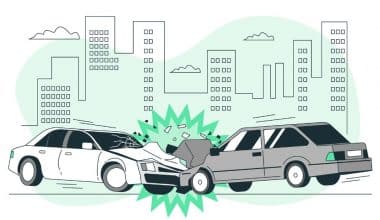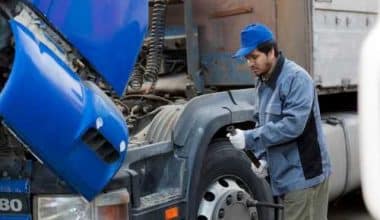Today, owning a car has become a necessity rather than a luxury. However, not all vehicles available in the market have a clean title. Some vehicles may have a salvage or rebuilt title, indicating they have been involved in damage or undergone extensive repairs. While these titles may bring some challenges, you can obtain car insurance for such vehicles. For this reason, this article gives a comprehensive guide on how to get car insurance for a salvage or rebuilt title, alongside the cost, USAA and Geico, and how to get a salvage title cleared. Interesting, huh? So, read on!
How To Get Car Insurance For A Salvage Or Rebuilt Title
Getting car insurance for a salvage or rebuilt title vehicle can be challenging, as these vehicles have higher risks. However, you can take some steps to secure the right insurance coverage for a salvage or rebuilt title vehicle. Hence, here’s a guide on how to get car insurance for a salvage or rebuilt title.
#1. Research Insurance Companies
First, research insurance companies that insure salvage or rebuilt title vehicles. Some companies specifically cater to this market and have experience in providing coverage for these types of cars. So, look for insurance companies with a good reputation.
#2. Gather Vehicle Information
Make sure you have all the necessary information about your salvage or rebuilt title vehicle. This includes details about the repairs, the replaced parts, and certifications such as a rebuilt or salvage title. This information will help insurance companies assess the vehicle’s condition and determine the appropriate coverage.
#3. Document the Repairs
Get detailed documentation of the repairs and improvements done to your salvage or rebuilt title vehicle. This can include invoices, receipts, photographs, and any other proof. Besides, providing this documentation to insurance companies shows the necessary repairs and can help with the underwriting process.
#4. Request Insurance Quotes
Contact insurance companies that offer coverage for salvaged or rebuilt title vehicles and request insurance quotes. Then, give them the necessary information about the vehicle and its repairs. Be ready to answer additional questions or provide further documentation if requested. Moreover, comparing quotes from multiple insurance companies will help you find the best coverage at a competitive price.
#5. Consider Specialty Insurance
If traditional insurance companies can cover your salvage or rebuilt title vehicle, consider specialty insurance providers. These companies may offer policies specifically for salvage or rebuilt title cars. While the premiums for specialty insurance may be higher, it can be the only way to get the coverage you need.
#6. Meet Legal Requirements
Ensure you meet all legal requirements for insuring a salvage or rebuilt title vehicle in your location. Some states have specific regulations or requirements for these types of cars, so make sure you are familiar with and comply with these regulations when applying for insurance.
#7. Stay Informed
Finally, note that insurance options for salvage or rebuilt title vehicles may vary from one insurance company to another. Therefore, stay informed about any changes in laws or insurance policies that may affect your coverage.
Salvage Title Insurance Cost
When purchasing a salvage vehicle, consider the cost of salvage title insurance. This is a type of insurance coverage that protects owners of salvage vehicles in case of damage, theft, or total loss. The cost of salvage title insurance can vary depending on the value of the vehicle, the condition of the salvage title, and the insurance provider. Generally, salvage title insurance may be more expensive than regular car insurance due to the increased risk with salvage vehicles. However, the cost can vary, and you should obtain quotes from multiple insurance providers to find the most competitive rate.
Note that salvage title insurance costs may also depend on the coverage level. For example, if you opt for comprehensive coverage that includes protection against theft, vandalism, fire, and natural disasters, the cost may be higher than basic liability coverage. Additionally, factors such as the driver’s age, location, and driving history may impact the cost of salvage title insurance. Therefore, to get the best deal, compare rates from different insurance companies and consider any additional discounts or benefits they may offer.
USAA Salvage Title Insurance
USAA salvage title insurance offers coverage for vehicles with salvage titles, providing a solution for individuals who wish to insure their salvaged vehicles. While traditional insurance companies might refuse to provide coverage for these vehicles, USAA recognizes the importance of insuring salvage title vehicles and offers specialized insurance for them.
With USAA salvage title insurance, you can have peace of mind knowing it protects your salvage title vehicle in accidents, theft, or other unforeseen events. This insurance coverage not only provides financial protection but also helps you comply with state laws that require insurance for registered vehicles. Whether the vehicle has undergone significant repairs or is still in its salvaged state, USAA salvage title insurance offers comprehensive coverage options for the needs of these vehicles. That’s ensuring protection and providing support to their owners.
Geico Salvage Title Insurance
Geico salvage title insurance covers vehicles with salvage titles, issued when a vehicle has been damaged or declared as a total loss by an insurance company. Salvage title vehicles can be a great option for individuals looking to save money on their purchases, but they can also have risks and uncertainties. That’s where Geico salvage title Insurance comes in to provide peace of mind and financial protection.
Geico salvage title insurance offers comprehensive coverage for salvage title vehicles, including protection against theft, vandalism, fire, and damage caused by natural disasters. This insurance helps to protect the investment in a salvage title vehicle and provides financial assistance in case of unexpected events.
So, with Geico salvage title insurance, you can drive your salvage title vehicles with confidence. Whether a rebuilt salvage vehicle or a vehicle with minor damage, Geico salvage title insurance provides the necessary coverage for these situations.
How To Get A Salvage Title Cleared
If you have a vehicle with a salvage title, it means it has been declared a total loss by an insurance company due to damage or theft. However, get a salvage title cleared and obtain a rebuilt or standard title for your vehicle. The process may vary depending on your state’s regulations, but here are some general steps.
- Firstly, repair the damages that led to the salvage title designation. Ensure you fix the issues according to safety and quality standards, as it will impact the inspection process later.
- Once the repairs are complete, take your vehicle to a certified mechanic or inspection facility authorized by your state’s Department of Motor Vehicles (DMV). They will thoroughly inspect the vehicle to verify it meets all the criteria for roadworthiness, safety, and compliance. This may include evaluating the repairs, checking the structural integrity, and confirming that all necessary parts function properly.
- If your vehicle passes the inspection, then submit the necessary paperwork, pay any required fees, and apply for a rebuilt or standard title.
- Finally, familiarize yourself with your state’s requirements and processes. This ensures a smooth and successful experience in getting your salvage title cleared.
How Does Salvage Insurance Work?
Salvage insurance compensates the insured party for the value of their property at the time of the loss or damage, rather than the cost of replacing or repairing the property. In other words, it considers the depreciated value of the property.
When a covered loss occurs, the policyholder submits a claim to the insurance company. That’s providing evidence and documentation of the damage. The insurer then determines the salvage value of the property. That’s the estimated value of the damaged property if it were to be sold in its current condition. This salvage value is deducted from the actual cash value (ACV) of the property to calculate the final claim payout.
How Do I Get A Salvage Title Cleared In Washington State?
- First, obtain a passing safety inspection from a licensed inspection station. This inspection ensures your vehicle meets the required safety standards.
- Once you have passed the safety inspection, then apply for a rebuilt title. To do this, submit the necessary paperwork, including the application for a certificate of title and a completed vehicle inspection form. Additionally, provide documentation showing proof of ownership and evidence of repairs to bring the vehicle back to a roadworthy condition.
- After submitting all the required documents and paying the necessary fees, the Washington State Department of Licensing will review your application and issue the rebuilt title if everything is in order.
Can You Drive A Car With A Salvage Title In Washington State?
In Washington State, you cannot drive a car with a salvage title until it gets a new title. This process ensures the vehicle has undergone thorough inspections and repairs and meets specific safety standards before it is roadworthy. So, by implementing this requirement, the state aims to prioritize driver safety and maintain the integrity of the roadways.
Can You Get Insurance On A Salvage Title In Georgia?
In Georgia, you can obtain insurance for a vehicle with a salvage title. However, the process may be more complex than insuring a vehicle with a clean title. Insurance companies typically have specific requirements and guidelines for issuing coverage on salvage-titled vehicles. These requirements may vary from one insurer to another, so shop around and compare quotes from different insurance providers.
How Is Salvage Value Calculated For Insurance?
To calculate the salvage value, insurance adjusters assess the extent of the damage and evaluate the condition and value of the item before the incident occurred. They consider depreciation, age, and condition to determine the salvage value. Then, they use this value in calculating the total payout to the policyholder, as it reduces the overall amount the insurance company is liable to pay.
What Is A Reasonable Salvage Value?
A reasonable salvage value refers to the estimated worth of an asset at the end of its useful life or after it damages or becomes obsolete. It represents the residual value or the amount recoverable from the asset through its sale, dismantling, or scrap value.
Determining a reasonable salvage value is important in industries where assets have a significant initial cost, such as manufacturing or construction. Also, it helps in estimating the total cost of ownership and depreciation of the asset over its lifespan.
Can You Negotiate Salvage Value?
In certain situations, such as when dealing with insurance claims or selling a used vehicle, negotiating the salvage value can benefit both parties.
For example, if you are in a car accident and your vehicle is a total loss, you may negotiate the salvage value with the insurance company.
Conclusion
In conclusion, obtaining car insurance for a salvage or rebuilt title vehicle may have some challenges, but the above steps can help you. However, understand the requirements and regulations regarding salvage or rebuilt titles in your state, as they can vary. Additionally, inspect the vehicle to ensure its safety and roadworthiness.






